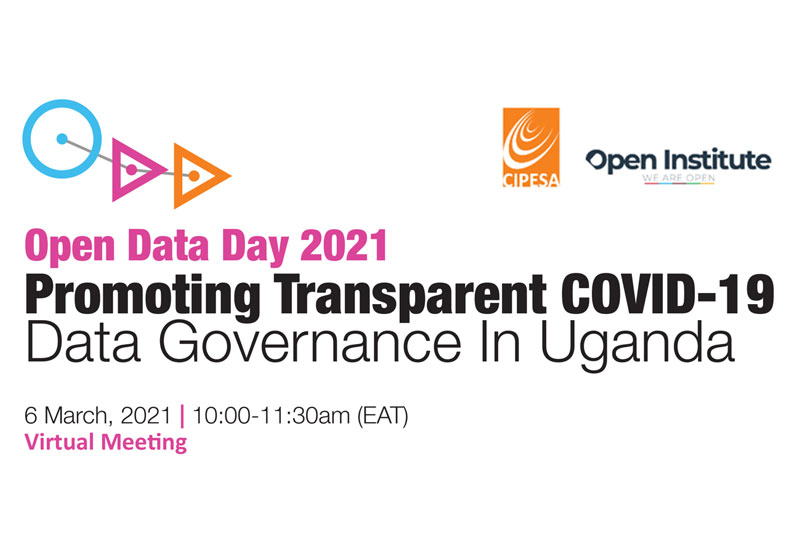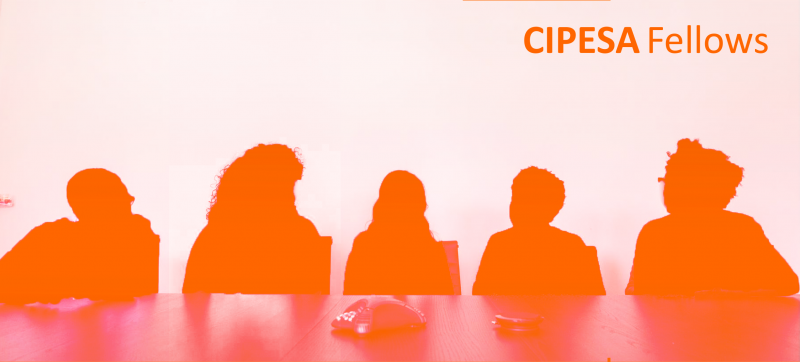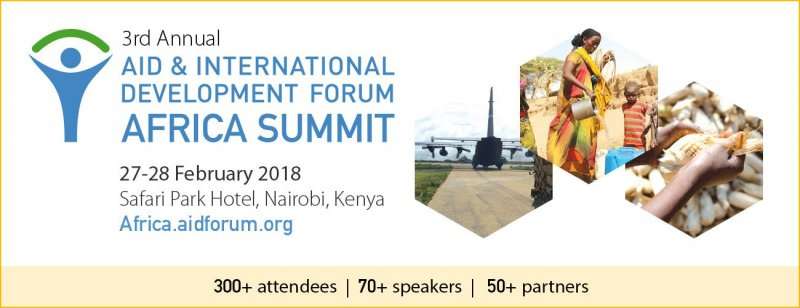Fellows |
In 2017, the Collaboration on International ICT Policy for East and Southern Africa (CIPESA) introduced its fellowship programme. The media fellowship aims to raise media understanding of, and its effective and consistent reporting of Information and Communication Technologies (ICT) -for-democracy issues in East Africa towards increased quality and regularity of reporting, as well as a greater diversity of voices, in coverage related to ICT, democracy and human rights.
The academia fellowship aims to nurture university students’ and early career academics’ understanding of ICT for governance, human rights and development. By engaging members of the academic community, the programme benefits partners of the ICT4Democracy in East Africa network through placements of individuals with skills in fields such as ICT, mass communication, and informatics, within the partner organisations. Ultimately, the programme aims to grow links between the academic community and practitioners in the ICT field for mutual research, learning and knowledge exchange, so as to create the next generation of ICT for democracy and ICT for human rights champions and researchers.
Since its launch, six fellows representing east and western Africa, as well as Asia have participated in the programme, with a wide range of outputs including commentaries, broadcast content, multimedia content and journal articles. The learning and experiences of the fellows so far have informed CIPESA’s contributions to the to the curriculum review and development for a Masters in eGovernance programme at Makerere University. Furthermore, CIPESA’s engagements with the Makerere University Development Informatics Research Group on the role academics should play to contribute to the national and global development agenda, including through producing actionable knowledge, creating closer linkages with development practitioners and seeking ways to influence policy making.

Media Fellow Emmanuel Kajubu assessed the performance of elected leaders in Western Uganda, a year after they were voted into office. Many of them had committed to improve service delivery in education and health if they were elected.
Kajubu focussed on the districts of Kabarole, Kasese, Kyenjojo, Kyegegwa, Ntoroko and Kamwenge, which form the Rwenzori region, and worked in collaboration with ICT4Democracy in East Africa partner Toro Development Network (ToroDev).
In interviews with the electorate, some members of the community said that after being elected, the leaders had not returned to consult them on issues affecting the community or fulfilled pledges made during campaigns. In response, many of the elected officials argued that they were constrained to carry out monitoring and supervision of government projects due to lack of funds.
His stories were published on the Uganda Radio Network website, an online news agency, and on the Toro Development Network website.
He also developed an eight-minute radio feature which summarised the views of the electorate and local leaders. It was broadcast on Hits FM Radio in Fort Portal on October 22, 2017. The radio station works with ToroDev and serves as a platform for the community in Western Uganda to air out issues affecting them and also for leaders to be accountable to the community.

Media Fellow Lilian Kaivilu is a multimedia journalist based in Nairobi, Kenya, with a keen focus on Innovations, Gender, Health, Business and Development stories.
Lilian works as a writing consultant with the World Bank Group and is also the founder of Impacthub Media, an online media platform that focuses on Development, Health and Innovation stories from Kenyan communities.
She has previously worked as a reporter for the Global Press Journal, Kenya News Desk. She has also worked as a Features reporter at Mediamax Network Limited (People Daily Newspaper), and as a sub editor at Shrend Publishers and Supplies Limited.
Lilian is a Bloomberg Media Initiative fellow (Strathmore Business School), Safaricom Business Journalism fellow (Strathmore Business School), Kenya Institute of Mass
Communication Journalism Graduate and a Linguistics, Media and Communication graduate from Moi University. In addition, she is currently taking Digital Capacity Building training by the World Association of Newspapers and News Publishers (WAN-IFRA). She is also pursuing the WAN-IFRA’s Media Management course.
For her fellowship tenure, in the run up to Kenya’s 2016 elections, Lillian covered stories on ICT for rural access to information, how ICT is transforming Nairobi’s Kibera slum, challenges to political participation by rural populations and local innovations in maternal health care.

Marvin Bwire, another fellow from Nairobi, Kenya worked to profile and raising awareness about female genital mutilation in Meru and empowering women in politics in Kenya through video. He worked with the Kenya Human Rights Commission (KHRC), a member of the ICT4Democracy in East Africa Network.
Marvin is a film production graduate from the Multimedia University of Kenya and a practicing journalist. His work is built upon the pillar of the right to information for all and the use of ICT as an avenue to provide information to the public.

Wanjiru Mburu is an ICT4D researcher who is passionate about using ICT to bridge the healthcare digital divide in developing countries.
She holds a bachelors degree and masters degree both in Computer Science, and is currently a Ph.D. student at the ICT4D center, University of Cape Town. Her research interests are mainly in human-computer interaction for development (HCI4D) and mobile health fields.
For her fellowship, Wanjiru worked with the Kenya Medical Research Institute (KEMRI) and African Population and Health Research Centre (APHRC), to research how ICT platforms can be used to educate mothers of preterm infants on their health rights in Kenya. A journal article from this fellowship was accepted in the 6th International Conference on Mobile Communication Technology for Development (M4D2018) conference proceedings which was held in Kampala, Uganda in December 2018.
Sotheavin Doch holds a bachelor degree in Environmental Science and a masters degree in Disaster Risk and Resilience. She was a Research Assistant for the BBC Media Action in Cambodia and is a Research and Partnership Officer with Open Development Cambodia (ODC). She supports ODC’s team to promote and teach use of ODC’s site as an open data platform. She organises training for citizens citizen journalists local authorities and others stakeholders to access information of public services’ services/fee digitized on ODC’s website and also conducts training on ‘data-driven journalism’ to journalist students in Cambodia to generate and analyse data into their news reports to develop a new way of telling stories with data or evidence.
Sotheavin joined CIPESA as part of the South South Media Lab (SSMLab) in-residence program which aims at increasing networking and collaboration within the media sector between South-East Asia and East Africa. The residencies took place during November and December 2018.
As part of the fellowship, Sotheavin worked on the use of open data and open source technology to promote public service delivery. She also conducted a training for journalists on data-driven reporting methods, through engagements and needs assessments with ICT4Democarcy Network partners CIPESA, Women of Uganda Network (WOUGNET) and Transparency International (TI) Uganda.
Tomiwa Ilori was hosted as a fellow by CIPESA as part of his Masters study in Human Rights and Democratisation in Africa at the University of Pretoria. He undertook research related to his study in the area of constitutional law.
He contributed to CIPESA’s policy analysis work by researching and producing commentaries on How Nigeria and Uganda are Faring on the Right to Information and consumer protection.
Tomiwa has experience working on digital rights in Nigeria and was also in charge of ongoing strategic litigation suits with respect to digital rights infringement in Nigeria by Paradigm Initiative. He is the coordinator of the NetRights Africa Coalition.











